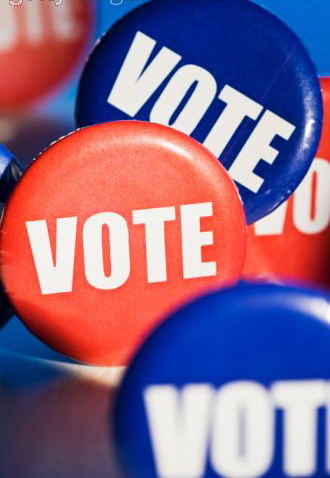[Media Note: Vanderbilt has a 24/7 video and audio studio with a dedicated fiber optic line and ISDN line. Use of the TV studio with Vanderbilt experts is free, except for reserving fiber time.]
CAMPAIGN RHETORIC AND NEGATIVE ADS

Expect the campaign rhetoric to sizzle the last two weeks before the 2010 midterms, says John Geer, chair and Distinguished Professor of Political Science, and author of In Defense of Negativity: Attack Ads in Presidential Campaigns. Geer researches negative ads and the role of the media in political advertising.
“The stakes are high—control of Congress, numerous governorships and state legislatures. The Republicans and Democrats have many differences that play out in attacks on each other. We can expect those attacks to increase before Nov. 2. Many observers will complain about all the negativity, but such complaints miss the point. These attacks are informative and define the decision before voters,” said Geer.
Have the Democrats spent too much money, expanded the scope of government too far and created not enough jobs? Or have the Republicans gone too far to the right, pushing an extreme agenda that is not consistent with the values of most Americans? Geer says the answers to these questions require each side to question and attack the other.
“This exchange is not bad for the country. It is in fact what makes us democratic.”
CONGRESSIONAL RACES
Many Democratic congressional incumbents are struggling for re-election, but it’s not always based on their political record, says Bruce Oppenheimer, who teaches and writes about Congress and elections.
The continued weak economy, widespread public distrust and large spending by special interest groups are all working against the Democrats this year.
“The GOP tidal wave might be so big that the Democratic incumbents can’t find a big enough hill,” Oppenheimer said.
He believes that the GOP has a better than 50/50 chance of taking control of the House, but Democrats are likely to maintain a narrow majority in the Senate. If the Republicans assume legislative control, the question then becomes what will be their priorities for the next two years?
Oppenheimer co-wrote Sizing Up the Senate and is the co-editor of Congress Reconsidered.
FREE SPEECH IN THE WORKPLACE DURING AN ELECTION
Politics and business have long gone hand-in-hand. But professor of sociology and management Bruce Barry finds that private companies’ enthusiasm for politics is affecting some employees’ First Amendment rights—and there’s not much an employee can do about it. Barry is author of Speechless: The Erosion of Free Expression in the American Workplace.
“There have been many situations where a worker is punished or fired for his or her own political expression or for refusing to participate in conveying an employer’s preferred message,” said Barry.
According to Barry, infringements on employee free speech have taken the form of punishing an employee for a certain political bumper sticker; firing a worker for the contents of a personal blog; or not hiring a person who doesn’t want to take part in a political rally.
CORPORATE ATTEMPTS TO INFLUENCE ELECTIONS
Conventional wisdom has been that corporate money in past elections has gone to both Democrats and Republicans as corporations and industry groups focus on pro-business candidates regardless of party.
“But now the partisan climate has become so pitched, with the ‘Obama-as-anti-business’ mantra gaining traction among conservatives, that we are seeing this year not just heightened spending, but a striking amount of pro-Republican business activity in electoral politics,” said Bruce Barry, professor of sociology and management.
Barry is in the process of writing a book on how changes in the law resulting from the Supreme Court decision in Citizens United v. Federal Election Commission and rising polarization regarding political attitudes toward business are leading to an expanded and more partisan role for business in this year’s elections.
LEGALIZING MARIJUANA—WHY TAXING MARIJUANA WON’T WORK
The current financial crisis hitting the United States has made the idea of legalizing and taxing marijuana much more attractive for debt-ridden states. Californians will vote on Proposition 19 during this election. Proponents claim they could generate more than a billion dollars by legalizing and taxing marijuana distribution and save millions more by reducing law enforcement costs on prohibition enforcement.
But Vanderbilt University law professor Robert Mikos explains in a new paper why legalizing and taxing marijuana distribution has too many legal hurdles to actually work.
“People in favor of taxing marijuana distributors are grossly underestimating the difficulty of collecting a tax on a drug that remains illegal under federal law,” said Mikos.
Mikos writes that the federal ban on marijuana would cripple a state’s ability to collect taxes for two reasons. First, the federal ban would encourage marijuana distributors to remain small and continue to operate underground. This prevents states from being able to monitor or tax the distributors. Second, even if states could successfully monitor marijuana distributors, any information collected by the state could be used by federal law enforcement to prosecute marijuana dealers.
Media Contacts:
Ann Marie Deer Owens, annmarie.owens@vanderbilt.edu
Amy Wolf, amy.l.wolf@vanderbilt.edu
(615) 322-NEWS